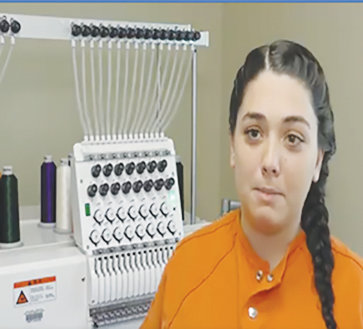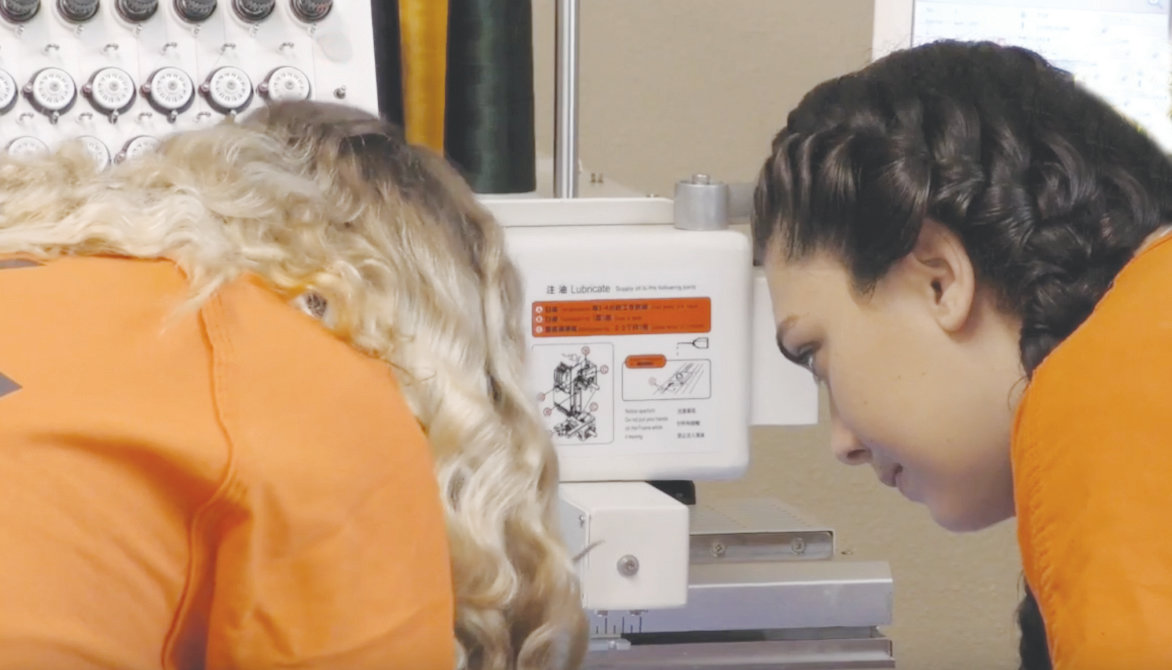New jail programs give inmates life skills, tools to be responsible residents
Classes designed to break cycle of crime, incarceration
GREEN COVE SPRINGS – Breanna Greathouse has big plans. She’s eager to put her troubled past behind her and become a responsible resident. She’s ready to get her children back. She wants to get …
This item is available in full to subscribers.
Attention subscribers
To continue reading, you will need to either log in to your subscriber account, or purchase a new subscription.
If you are a current print subscriber, you can set up a free website account and connect your subscription to it by clicking here.
If you are a digital subscriber with an active, online-only subscription then you already have an account here. Just reset your password if you've not yet logged in to your account on this new site.
Otherwise, click here to view your options for subscribing.
Please log in to continueDon't have an ID?Print subscribersIf you're a print subscriber, but do not yet have an online account, click here to create one. Non-subscribersClick here to see your options for subscribing. Single day passYou also have the option of purchasing 24 hours of access, for $1.00. Click here to purchase a single day pass. |
New jail programs give inmates life skills, tools to be responsible residents
Classes designed to break cycle of crime, incarceration
GREEN COVE SPRINGS – Breanna Greathouse has big plans. She’s eager to put her troubled past behind her and become a responsible resident. She’s ready to get her children back. She wants to get to work.
And she can’t wait to collect a free steak dinner.
The 25-year-old will finish serving a six-month sentence for petit theft and possession of methamphetamine on Sunday. When she walks out of the Clay County Jail, she insists she not only will be free of incarceration, but the lifestyle that’s led to a destructive routine of drug abuse and jail time.
“I’ve been in and out of jail since I was 18,” she said. “Not anymore. You may see me again, but not in here [jail].”
Greathouse exudes energy. Her smile is infectious. The troublemaker who took “any drug I could get, but mostly methamphetamine,” now is a model inmate. And on Sunday, she will be a model member of the local community.
“Before I got in here, I was in the drug scene and doing one thing after another. I didn’t have any goals or life skills,” she said. “This has not only taught me a career which I can use on the outside, it’s taught me team skills and how to be productive and be on time. It’s been a very, very long time since I’ve felt this good about myself. I couldn’t say that before I was in here.”
Greathouse is one of many who are enrolled in a variety of programs at the jail to better prepare inmates to be functioning members of society. There are courses in anger management, batterer’s intervention, alcoholics and narcotics anonymous, art, Bible study, embroidery, engraving, life skills, GED, safe staff food handler’s certification, soul transformation, substance abuse and T4C – Thinking for a Change.
For Greathouse the past six months were time well-spent.
“The past six months is the best thing that every happened to me,” she said.
The programs are designed to help prisoners who have been sentenced locally, according to Steven Inman, Chief of Detention Administration. The fail has worked feverishly to change its approach to using jailtime as punishment.
“We have roughly 450 people in jail right now and probably 100 of them are county-sentenced,” Inman said. “That’s 100 people that are going to be returning to our community in the next year. Our hope is that we set them up with some sort of a plan so there can be successes when they get out. We measure success by being self-sufficient and avoiding the criminal justice system.
“When the sheriff took office, he charged everyone that works in this agency with two initiatives – crime reduction and community engagement. Everything we do revolves around those two initiatives. This is one of the ways the jail supports the crime reduction initiative.”
Greathouse wishes those programs were available during her other stints in jail. When she was released in the past, she lacked the self-assurance and skills to succeed. Falling back into a trap of crime and drug abuse was inevitable.
“Anybody who thinks jail is easy, it’s not easy,” she said. “In the past, I didn’t care about the route I was on. I’ve been in here a few times. Last year when I was in here, it wasn’t like this. I don’t remember any programs. The staff seemed like it was OK for it be a normal cycle.”
She’s been such a model student, two corrections officers promised if she’s not arrest in the next year, they will buy her a steak dinner.
“I’m looking forward to that,” she said.
Inman believes the community is better served by the programs. Anything that breaks the hopeless cycle of crime, abuse and addiction benefits everyone – especially for women inmates.
“Yes, we have a vested interest in it. I’ve lived in this community for 25 years. I’m married. I’ve raised my kids here. My parents live in this community. I do have a vested interest,” he said.
“For example, 90% of the people who come to jail are drug related or it’s a secondary offense to drugs. If they’re breaking into homes, it’s to get money to buy drugs. If they’re beating up their significant other, it’s usually because they’re under the influence of alcohol. Substance abuse is a big issue we have in Clay County – probably a big issue in any criminal justice in the country.”
The problem affects woman the most, Inman said.
“There are a lot of issues that are unique to females. Typically, when corrections first came about, the philosophy behind corrections was the punishment should be so severe, the person doesn’t want to re-offend,” he said. “And it should be public so everybody witnessing that kind of punishment would not want to commit that offense. We’ve come a long way in the last 200 years with that.
“One of the things about females is most of them that come in here have a low self-esteem. We’re working on a class now, and it’s in its infant stages so I don’t know how it’s going to look like, but it’s specifically for females to boost that self-esteem. Let them know they’re worth more than coming to jail.
“I have two daughters. I always tell them if you want to be a housewife, that’s fine. If you want to raise kids and never work, that’s fine. But I don’t want them to ever be in a position where they’re dependent on a man. I want them to have some sort of skills so they can provide for themselves. We need to do more to build that spirit up while having some focus on character.”
Greathouse is working on her GED. She’s also been through anger management and parenting classes, as well as learning embroidering.
“I can’t wait to get a job,” she said. “I’d like to do alterations.”
The sheriff’s office is transitioning to allowing the embroidering class create patches and do alternations on uniforms. The engraving class now makes name tags.
“When we needed a new name tag, it usually took about two weeks and it cost $14,” Inman said. “Now it takes two hours and it’s done for about $3. The county saves money, our inmates get real-life skills. Everybody wins.”
The classes are paid by money collected from inmates in the commissary and phone cards.
Greathouse first will have to make a case to regain custody of her 3- and 5-year-old children. This time, however, she’s been empowered with the confidence and knowledge required to be a responsible parent.
“I have to do that for my child case,” she said. “It’s going to be nice to go in an argue with the knowledge of what they’re speaking about. That’s why I didn’t want to come in here and just sit around and let time go by. I want to be productive and learn things.”
And collect a free steak dinner in a year.











